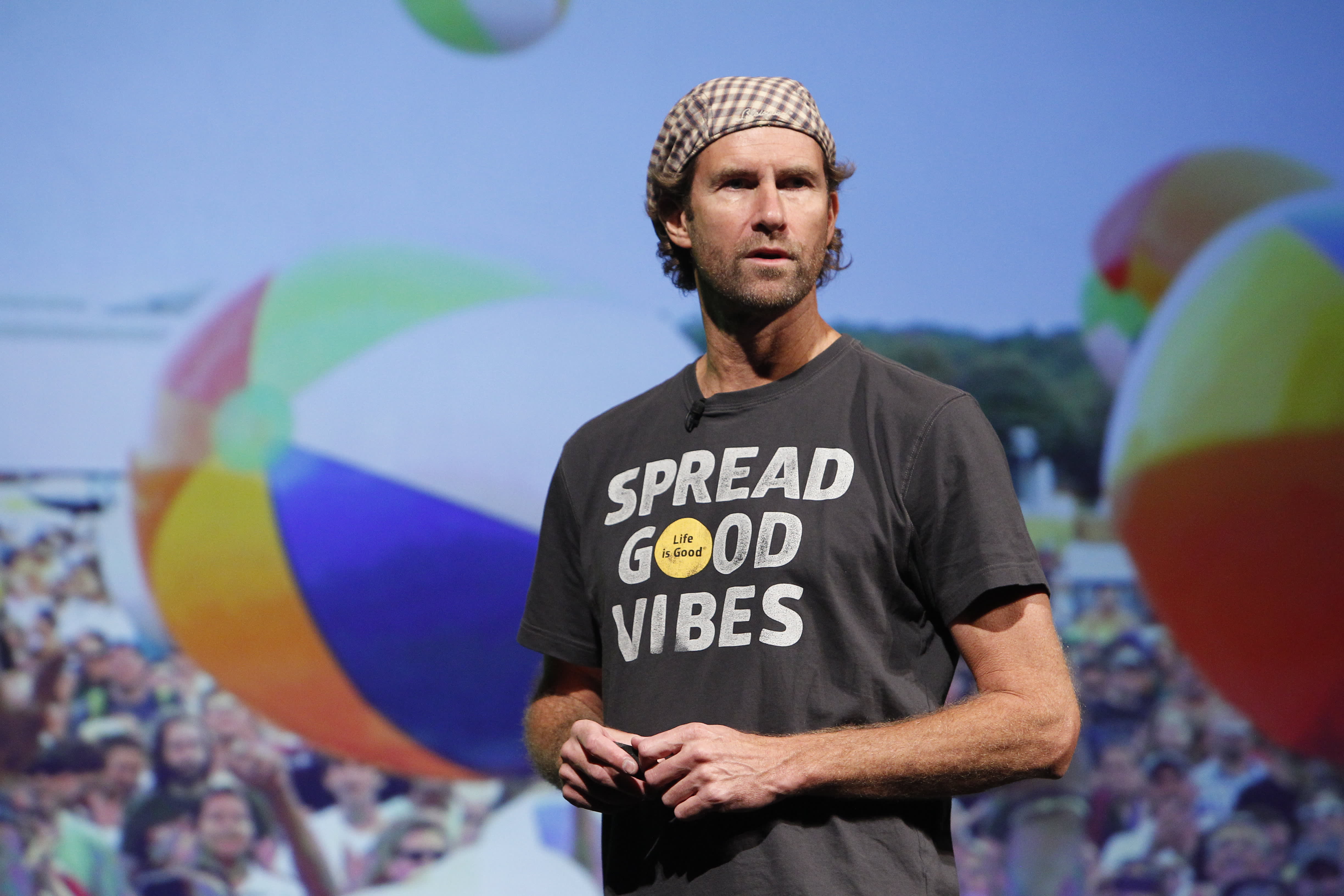Life is Good was on the verge of filing for bankruptcy protection last year, according to its CEO, but the retailer managed to overhaul its business strategy in a matter of weeks to have its best year ever during the Covid pandemic.
“When [Covid] hit, 50% of our business was wholesale … and that business died in a hurry,” Life is Good co-founder and CEO Bert Jacobs said Tuesday during CNBC’s Small Business Playbook event.
“We were in a situation where we were facing bankruptcy, and we were facing having to cut at least half of our staff. That’s when we said … let’s play offense really hard. Let’s produce this stuff to order, and let’s see what happens.”
Instead of ordering in bulk shirts, pullovers, hats and other accessories that are already printed with logos, slogans and other designs, Life is Good started ordering batches of blank items last year, the CEO explained. Then, monitoring consumer sentiment, it began printing inventory on-demand that had phrases about staying home and quarantining, wearing masks, and other pandemic-related trends.
“We started speaking to whatever was culturally relevant, which at the time was a lot of difficult things, but we tried to keep it light,” Jacobs said.
The strategy clearly helped. Not only did it aid in boosting customers’ morale, but it was a financial success story.
“2020 ended up being the best top line we’ve ever had in 27 years, and the strongest bottom line,” Jacobs said. (The privately held company didn’t break out exact sales figures.)
“2020 showed us how we should be running our business,” he said, adding that sales in 2021 are still “growing like mad” because Life is Good is sticking to the business principles that it picked up on during the past few months.
“We are working for the consumer, and everybody’s got to do that,” Jacobs explained. “The [retailers] that survive are going to be the ones that listen closely and capture the data. … The consumer gives you the answers.”
A number of retailers were not as lucky as Life is Good last year, as they buckled under the pressures brought on from the health crisis. Dozens filed for bankruptcy, and thousands of store closures were announced by retail businesses, many in the apparel category.
There is a renewed sense of optimism, however, that demand is beginning to rebound as consumers leave their homes and prepare to socialize again. Americans will be returning to work, in droves, in the months ahead, and families are looking to book long-awaited summer vacations.
“This is really a community of rational optimists,” Jacobs said. “I say rational optimists because we recognize that there are challenges in the world … that it’s difficult … but we decide when we wake up in the morning to focus on what’s right with our lives, what’s right with the world, more than what’s wrong with the world.”
